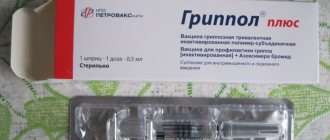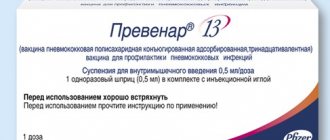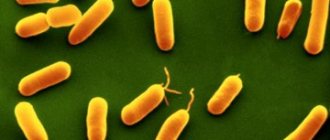Prices
Our doctors
How to get there
Make an appointment
Please check the cost of services with the clinic’s medical consultants by phone
| Service | Price |
| KOKAV Rabies vaccine culture concentrated purified inactivated | 1100 rub. |
Externally, the vaccine is a hygroscopic porous white mass. After dissolution, it becomes white. Kokav provides the formation of immunity and effective protection against rabies. Vaccination is carried out for preventive or therapeutic purposes.
The Kokav vaccine is a rabies virus grown on a primary culture of Syrian hamster kidney cells and has undergone special purification.
Features of the use of the Kokav vaccine
The main indication for rabies vaccination for therapeutic and prophylactic purposes is the bite of an unknown animal or an animal with signs of rabies. In this case, there are no contraindications to immunization.
Before administering the vaccine, the bite wound must be treated. The wound surface is treated with a soap solution, and the edges of the wound are treated with alcohol or tincture of iodine. If the wounds are extensive, suturing is performed.
For therapeutic and prophylactic purposes, vaccination should be carried out as soon as possible after the bite has occurred. The dose is calculated depending on the patient's body weight. The vaccination schedule is detailed in the instructions for the drug.
The standard vaccination schedule is as follows:
1 vaccine - 3 day – 7 day – 14 day – 30 day – 90 day. The severity of the bite is taken into account.
Administration of the vaccine for therapeutic purposes is stopped after the third dose if the animal does not show signs of disease. If it is not possible to observe the animal (in the case when it has disappeared), treatment must be continued. Doses and immunization schedules are the same for adults and children.
During the period of taking the vaccine for therapeutic and prophylactic purposes, it is not recommended to drink alcoholic beverages. It should also be taken into account that some medications (immunosuppressants and corticosteroids) reduce the effectiveness of the drug.
Kokav vaccination can also be carried out for purely preventive purposes. The introduction of vaccination in this case is indicated for a specific group of people. These are veterinarians, hunters, people working to catch stray animals, foresters, and taxidermists.
Primary immunization in this case involves the administration of three vaccines. In the future, the first revaccination is carried out after a year, and subsequent vaccinations every three years.
What conclusion can be drawn
According to reviews from doctors, the answer to the question: rabies vaccinations, is it possible to drink alcohol, is not strictly negative. Doctors do not place any strict prohibitions on the consumption of these drinks, but they also do not recommend abusing them. The fact is that the consumption of drinks that contain alcohol can cause a violation of the program and overall vaccination schedule, and skip some important vaccination days. In addition to this, the introduction of a vaccine can provoke an allergy, which is masked by signs of intoxication and other “unnecessary” symptoms.
In this regard, if you decide to get a vaccine to prevent rabies infection, it is absolutely important to refrain from consuming wine, vodka, beer, champagne and even low-alcohol drinks for at least some time. Otherwise, there is a risk of not monitoring your own health condition and not seeing a doctor in a timely manner And since the disease implies a high mortality rate, the issue is resolved in itself: alcohol is strictly prohibited for consumption in the process of preventing rabies.
Otherwise, there is a risk of extremely adverse consequences.
Contraindications, precautions and side effects
If the Kokav vaccine is taken after an animal bite for therapeutic and prophylactic purposes, no contraindications are noted, due to the great danger of rabies for human health and life.
When it comes to preventive vaccination, the following contraindications are identified:
- the patient has signs of acute infectious diseases - in this case, vaccination is carried out a month after recovery;
- development of allergic reactions after previous vaccines;
- allergy to antibiotics;
- period of bearing a child.
After vaccination, the patient must be under medical supervision for 30 minutes.
The Kokav vaccine is not combined with other drugs. After completing the patient's treatment for rabies, vaccinations against other infectious diseases are allowed only after two months.
Possible side effects:
- slight swelling, redness and thickening of the skin at the injection site;
- headache, general malaise;
- allergic reactions such as rash or angioedema;
- increased body temperature, fever;
- serum sickness.
Serum sickness usually occurs 6-8 days after administration of immunoglobulin. Anaphylactic reactions require medical attention and placement of the patient in a specialized medical facility. He is prescribed antihistamines.
No cases of vaccine overdose have been recorded. Considering the fact that rabies has a 100% fatality rate, in no case should a violation of the vaccine administration schedule be allowed.
At the end of the course of taking the drug for therapeutic and prophylactic purposes, the patient is given a certificate of vaccination.
Vaccination against rabies
In accordance with the Fundamentals of the legislation of the Russian Federation on the protection of the health of citizens (Article 33), “A citizen or his legal representative has the right to refuse medical intervention or demand its termination...”
In accordance with the Federal Law of September 17, 1998 N 157-FZ “On Immunoprophylaxis of Infectious Diseases” Article 5. Rights and responsibilities of citizens in the implementation of immunization:
1. When carrying out immunoprophylaxis, citizens have the right to:
...refusal from preventive vaccinations.
2. Lack of preventive vaccinations entails:
- a ban on citizens traveling to countries where, in accordance with international health regulations or international treaties of the Russian Federation, their stay requires specific preventive vaccinations;
- temporary refusal to admit citizens to educational and health institutions in the event of widespread infectious diseases or the threat of epidemics;
- refusal to hire citizens for work or removal of citizens from work, the performance of which is associated with a high risk of contracting infectious diseases.
Decree of the Government of the Russian Federation dated July 15, 1999 N 825 approved a list of works, the implementation of which is associated with a high risk of contracting infectious diseases and requires mandatory preventive vaccinations:
1. Agricultural, drainage, construction and other work on excavation and movement of soil, procurement, fishing, geological, survey, expedition, deratization and disinfestation work in areas unfavorable for infections common to humans and animals.
2. Work on logging, clearing and improvement of forests, health and recreation areas for the population in areas unfavorable for infections common to humans and animals.
3. Work in organizations for the procurement, storage, processing of raw materials and livestock products obtained from farms affected by infections common to humans and animals.
4. Work on the procurement, storage and processing of agricultural products in areas unfavorable for infections common to humans and animals.
5. Work on the slaughter of livestock suffering from infections common to humans and animals, the procurement and processing of meat and meat products obtained from it.
6. Work related to the care of animals and maintenance of livestock facilities in livestock farms that are vulnerable to infections common to humans and animals.
7. Work on catching and keeping stray animals.
8. Maintenance work on sewerage structures, equipment and networks.
9. Work with patients with infectious diseases.
10. Work with live cultures of pathogens of infectious diseases.
11. Work with human blood and biological fluids.
12. Work in all types and types of educational institutions.
Thus, if the profession is related to the need for preventive (pre-exposure) vaccination against rabies, then the person has the right to refuse vaccination, but then does not have the right to work in this profession.
Contraindications to vaccination
Absolute contraindications to the administration of the SPUTNIK V vaccine are:
- hypersensitivity to any component of the vaccine or a vaccine containing similar components
- history of severe allergic reactions
- pregnancy and breastfeeding;
- acute infectious and non-infectious diseases, exacerbation of chronic diseases - vaccination is carried out 2-4 weeks after recovery or remission. For mild acute respiratory viral infections and acute infectious diseases of the gastrointestinal tract, vaccination is carried out after the temperature has normalized.
- age under 18 years (due to lack of data on effectiveness and safety)
Contraindications for administration of 2 components of the vaccine:
- severe post-vaccination complications (anaphylactic shock, severe generalized allergic reactions, convulsions, temperature above 40, etc.) after the introduction of component 1 of the vaccine.
With caution (vaccination is indicated, but additional attention/supervision by medical personnel is required to prevent an undesirable reaction):
- chronic liver and kidney diseases
- endocrine diseases
- severe diseases of the hematopoietic system
- epilepsy, ACS, stroke, myocarditis, pericarditis, endocarditis
Due to a lack of information, vaccination may pose a risk to the following patient groups:
- autoimmune diseases
- malignant neoplasms
Contraindications
Any medicine has restrictions on its use, and rabies vaccines for humans are no exception.
The main ones include the following:
- Individual intolerance to individual components of the product;
- Any infectious diseases in the acute phase;
- Severe chronic diseases, especially in the stage of decompensation;
- The presence of severe forms of allergic reactions or pronounced manifestations of allergies during previous vaccinations with anti-rabies serum;
- Pregnancy and lactation period.
In emergency cases of vaccination, contraindications are not taken into account.
Side effects:
The administration of serum can be accompanied by both local manifestations and have a negative effect on the entire body.
Local reactions appear:
- Local redness;
- Itching;
- Local edema and hyperthermia;
- In rare cases, enlargement of regional lymph nodes is observed.
General manifestations:
- Symptoms of intoxication (dizziness and headache, weakness);
- Temperature increase;
- Dyspeptic symptoms (nausea, diarrhea, vomiting);
- Neurological manifestations are rarely observed.
special instructions
The rabies vaccine must be administered in a medical institution by qualified medical personnel. After the injection is given, the patient must be under the supervision of a doctor or nurse for at least 30 minutes. If any of the above-mentioned side effects occur, you must immediately take antihistamines and antisensitizing medications. If a neurological symptom complex manifests itself, urgent hospitalization is necessary.
In any medical office where the procedure is carried out, there must be an anti-shock first aid kit to provide first aid in case of shock. All vaccinated people are given a special certificate indicating the type and serial number of the vaccine and the course of use of the drug.
When undergoing a course of treatment with an anti-rabies vaccine, it is necessary to completely avoid drinking alcoholic beverages for six months. Try to avoid hypothermia, overwork, prolonged exposure to the sun, and stress factors.
Information about medical exemption from vaccination
A medical exemption from vaccination is a doctor’s official conclusion that it is impossible to vaccinate at the current time.
Under what conditions can a doctor issue a medical exemption from vaccination?
- at the examination immediately before vaccination (if there are contraindications)
- at a routine examination with the attending physician in the presence of diseases that are the basis for medical withdrawal.
Grounds for obtaining a medical exemption from vaccination against coronavirus infection:
- hypersensitivity to any component of the vaccine or a vaccine containing similar components;
- history of severe allergic reactions (documented);
- acute infectious and non-infectious diseases, exacerbation of chronic diseases - vaccination is carried out 2-4 weeks after recovery or remission. For mild acute respiratory viral infections and acute infectious diseases of the gastrointestinal tract, vaccination is carried out after the temperature has normalized.
- age under 18 years (due to lack of data on effectiveness and safety);
- breastfeeding (you must provide a birth certificate or a certificate from a pediatrician that the child is breastfed, where required).
Is it possible to get a medical exemption without specifying the reason?
If there are contraindications, providing supporting documents is mandatory. Without documents confirming the reason, a medical exemption is not issued. The decision on a medical exemption from vaccination can only be made by a doctor during an examination.
How can I get a medical exemption if I am a patient of the Medical Center?
- Make an appointment with a therapist or your primary care physician. To your appointment, you must bring all the documentation regarding your disease that was obtained from third-party medical organizations.
- The decision on medical withdrawal and its timing is made by the medical commission individually.
How can I get a medical referral from a doctor at your clinic if I am being seen in another medical institution?
- contact your doctor.
- make an appointment with a therapist or specialized doctor for your disease. At your appointment, you must provide medical reports and all available medical documentation confirming your illness. The decision to issue a medical exemption will be made individually.
How to get a medical exemption if you are allergic to vaccine components?
- make an appointment with a therapist
- You must bring confirmatory tests to your appointment (if they were obtained from a third-party medical organization).
How to get a medical exemption if you have tests for antibodies (IgG) to COVID-19?
Vaccination is carried out regardless of the presence and quantity of antibodies. The presence of IgG antibodies in any titer is not a contraindication or grounds for medical exclusion from vaccination.
What examination must be completed before vaccination at the Medical Center?
- Currently, there is no approved list of pre-vaccination examinations.
- During the examination, the doctor will select an individual examination plan based on the patient’s indications and complaints.
Is it possible to get a medical certificate/certificate of coronavirus infection in the last 6 months at the Medical Center if I was observed in another medical institution?
A certificate of past illness can only be issued by a medical organization to which the patient sought help during the period of illness.





